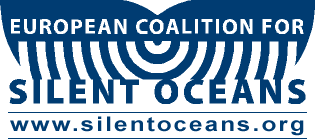|
The US and NATO naval forces are using sonar systems to detect and track (enemy) submarines. These systems send out medium and low-frequency impulses.
The low-frequency systems are known as “Surveillance Towed Array Sensor System Low-frequency Active Sonar (LFAS)“. The noise level of all these impulses is extremely high and measures well in excess of 200 dB. In comparison, the noise level of a jet taking off is around 140 dB. Various incidents have come to light where there are strong grounds to suggest that individual whales have been stranded and killed through use of these systems. The possible negative influences of such sonar systems on large fish stocks and humans are also being investigated.
Initial provisional legal appraisal of the situation from the point of view of the Law of the Sea and International Law
Based on the background situation outlined above, there are already compelling reasons to suspect that certain soft law provisions in the Law of the Sea, aimed at protecting the marine environment from being endangered and destroyed, are being violated. Furthermore, at this stage, we also cannot dismiss violation of a number of international treaties governing law on the protection of the environment, the sea and, possibly, animal rights.
Consequently, the ASMS (Swiss Marine Mammal Protection) has arranged for a violation of the United Nations Convention on the Law of the Sea (Part XII concerning Protection and Preservation of the Marine Environment) to be examined in greater detail. The item in this Convention describing “pollution of the marine environment” could also include vibrations and noise. Certain principles of this Convention also have to be observed as part of international soft law by those states that have not ratified the treaty, such as the USA.
Various other international treaties are likewise aimed at protection of the environment and protection of creatures living in the wild, especially whales, and of other species. These treaties partially reinforce the obligation under international law not to cause or to tolerate pollution of the high seas; they also partially underline the principle of freedom of the seas, which allows free use of the high seas for inter alia maritime transport and fishing. In addition, International Law concerning neighbourly relations between states obliges every state to do its utmost to ensure that its territory is not used for actions that contravene the laws of other states.
International Law stipulates that, even during wartime, no use may be made of means and methods of warfare that damage the natural environment and cause unnecessary suffering. Moreover, in peacetime, it is categorically forbidden for weapons and surveillance systems to be allowed to cause any substantial environmental damage.
|
